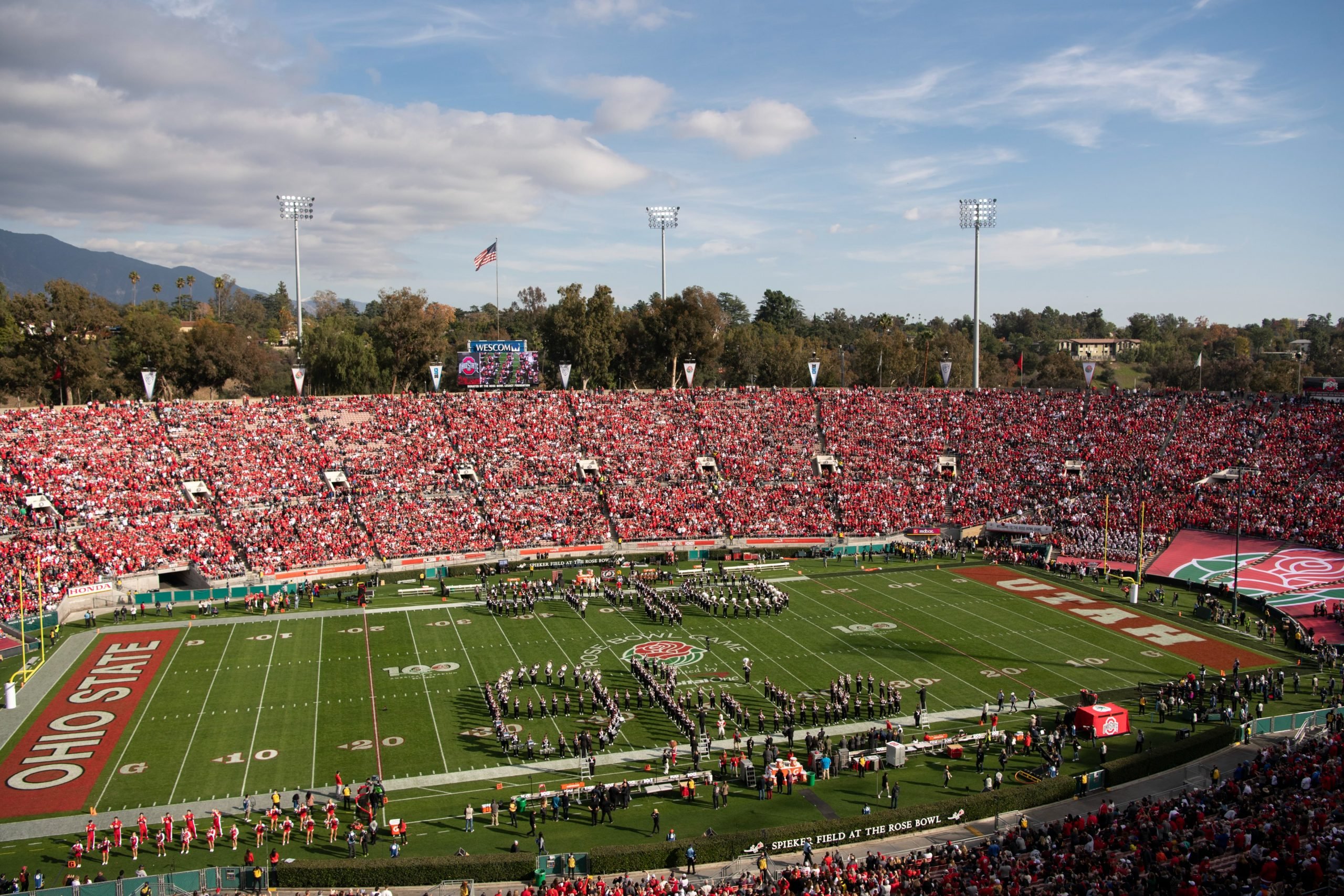Posted on: June 2, 2022, 07:12h.
Last updated on: June 2, 2022, 09:15h.
Sports betting in Ohio won’t start for nearly another seven months. But already, one industry leader tells Casino.org that he’s looking forward to what shapes up to be a robust market in one of the country’s largest states.

The law legislators passed late last year gives a lot of entities a chance to get in the game: professional sports teams, casinos, racinos, bars, and even standalone sportsbooks.
You’ve got the ability to basically place a wager on just about any corner, which I think, in many ways, will make it the most competitive market in the country,” Sportradar’s US Head of Government Affairs Brandt Iden told Casino.org Wednesday.
Sportradar is an international company specializing in sports data that works with sports betting operators, sports leagues, and media companies.
It’s not just the breadth of sports betting options that will make Ohio attractive, Iden said. With a population of 11.8 million people, it’s the seventh-largest state in the US, and will be the fourth-largest legal sports betting market when the Jan. 1, 2023 launch date arrives. Lawmakers also set the tax rate at 10%, a far cry from the 51% rate in New York or even the 36% rate in Pennsylvania.
The state has four commercially licensed casinos overseen by the Ohio Casino Control Commission (OCCC) and seven video lottery terminal racinos at race tracks regulated by the Ohio Lottery. But Iden noted that the state does not have some of the issues that other states faced as they moved to legalize sports betting. He cited tribal gaming compacts in neighboring Michigan, where Iden served six years as a state representative, as one example.
And even though there are now more states that have legalized sports betting than have not, Iden added that Ohio can become a blueprint for other states.
“We want to ensure that we see more models with lower tax rates like Michigan and Ohio and less like New York at 51% to make it a competitive industry,” said Iden, who also serves on the American Gaming Association Board of Directors.
A Lot of Heavy Lifting Remains
While some in the Buckeye State were hopeful for an earlier launch to capture more of the NFL football season, the law gave the OCCC until Jan. 1, 2023, to get everything in order for a universal launch. Commission officials noted that some operators, like online sportsbooks, may be able to set up shop more quickly. But they noted that legislators made it clear they wanted everyone to have the same start date.
As Ohio lawmakers crafted their sports betting bill throughout 2021, one theme was constant – they wanted to open the door for as many outlets as they feasibly could.
OCCC Matt Schuler said at Wednesday’s commission meeting, when the launch date was officially set, that his office will need to perform “comprehensive compliance examinations” on about 3,000 potential licensees. Many of those will be by-the-drink liquor establishments where self-serve or clerk-operated kiosks can be set up.
Iden told Casino.org that the agency has a tall, but manageable, task ahead of them.
“There’s a tremendous amount of work there. But at the same time, they’ve known this,” he said. “They’ve been planning it for a year. I think that they’ll be ready.”
In addition, just because the universal launch date is New Year’s Day, that does not mean all licensees will be ready themselves on that day. And, as Iden noted, with 25 online licenses and 40 retail licenses available, odds are good that there will be some still available by the launch date.
Dan Dodd, a former Ohio state lawmaker, worked with the online gaming trade group iDevelopment and Economic Association (iDEA) last year in Columbus. He tweeted Wednesday that it “would be mildly surprising” if more than 30 operators got involved in the state.
Big Bonuses? Don’t Bet On It
Of the five states that border Ohio, only Kentucky has yet to legalize sports betting. So, there’s probably a good number of Ohio residents who already have apps downloaded and are crossing state lines to make bets in Indiana, Michigan, Pennsylvania, and West Virginia. But Iden said there are still plenty of people who either still bet illegally or are potential casual bettors that operators can market to come Jan. 1.
Still, he doesn’t believe you’ll see the massive matching bonuses that sportsbooks have offered in other states, because marketing budgets are tightening.
Operators are seeing that they don’t need to do $5,000 player bonuses to get people to sign up… There’s going to be a lot of noise out there, a lot of advertising spend, and I don’t think they can all afford to do $1,500 to $2,000,” Iden told Casino.org.
He believes most will offer around $500 to new players, since they know many new players take advantage of the bonuses at first and eventually choose one or two sportsbooks as their preferred apps.
The application period for most aspiring sports betting operators in Ohio will start on June 15.
